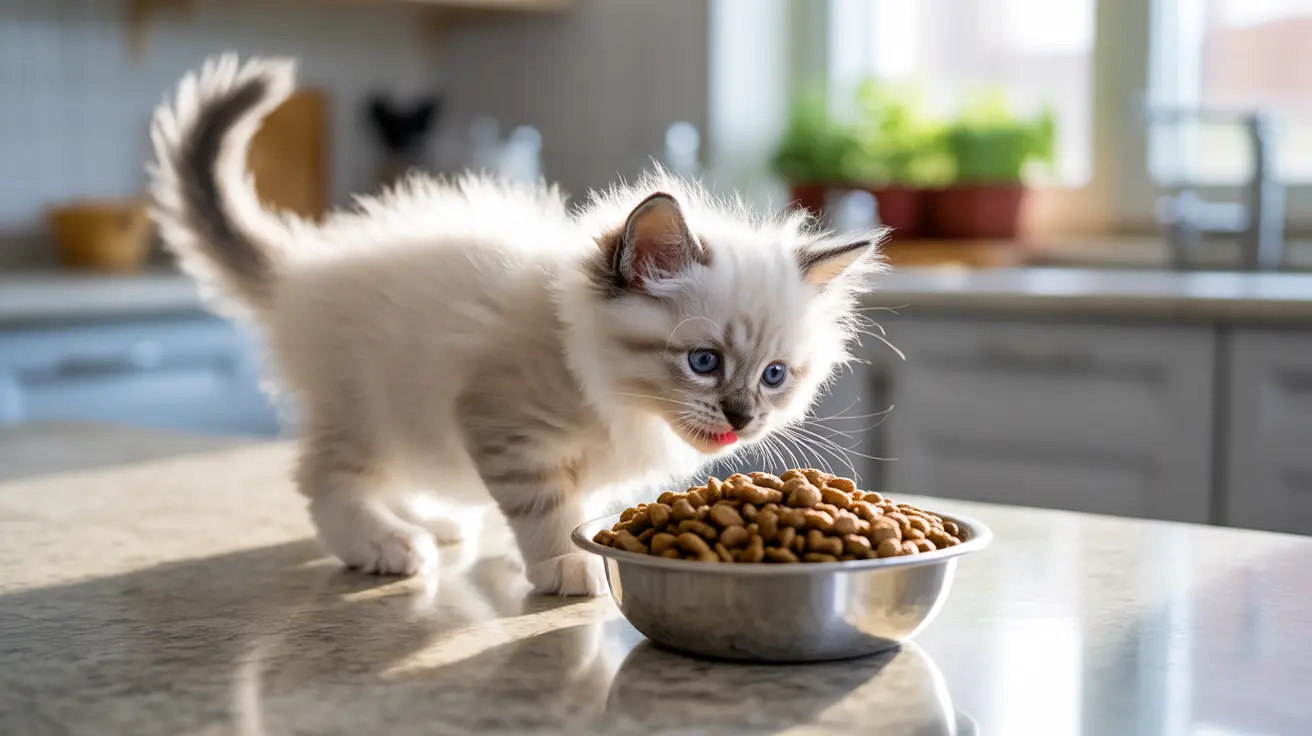Choosing the right natural food for kittens is crucial for their growth, development, and long-term health. As young cats experience rapid growth during their first year, they require specific nutrients in precise amounts to support their developing bodies and minds. This comprehensive guide will help you understand how to provide optimal nutrition through natural food choices for your kitten.
From essential nutrients to proper portions, we'll explore everything you need to know about feeding your kitten a natural diet that supports their unique developmental needs. Whether you're considering homemade meals or looking for natural commercial options, this guide will help you make informed decisions about your kitten's nutrition.
Understanding Your Kitten's Nutritional Needs
Kittens require significantly higher levels of protein, calories, and specific nutrients compared to adult cats. Their rapid growth phase demands carefully balanced nutrition to support proper development of muscles, bones, organs, and cognitive function.
A natural diet for kittens should include high-quality animal proteins, essential fatty acids, and appropriate levels of vitamins and minerals. The protein content should make up 30-40% of their diet, with fats accounting for 20-30%, and the remaining balance coming from moisture and minimal carbohydrates.
Best Natural Food Sources for Kittens
When selecting natural foods for your kitten, focus on high-quality protein sources that are easily digestible and nutrient-rich. The best options include:
- Lean poultry (chicken, turkey)
- Quality fish (salmon, sardines)
- Organ meats (in moderation)
- Eggs (fully cooked)
- High-quality commercial kitten food made with natural ingredients
Creating a Balanced Natural Diet
While feeding natural foods sounds appealing, achieving the right balance of nutrients is crucial. A properly balanced natural diet should include:
- Multiple protein sources for complete amino acid profiles
- Essential fatty acids from fish or fish oil
- Calcium and phosphorus in the correct ratios
- Taurine-rich ingredients
- Appropriate vitamin and mineral content
Transitioning to Natural Foods
The transition to natural foods should be gradual, typically occurring after weaning (around 4-8 weeks of age). Start by mixing small amounts of natural food with their current diet, gradually increasing the proportion over 7-10 days to avoid digestive issues.
Feeding Schedule and Portions
Kittens need frequent meals throughout the day to support their high energy needs. For optimal growth and development:
- Ages 6-12 weeks: 4-6 small meals daily
- Ages 3-6 months: 3-4 meals daily
- Ages 6-12 months: 2-3 meals daily
Common Natural Food Mistakes to Avoid
When feeding natural foods to kittens, be aware of these common pitfalls:
- Feeding an unbalanced homemade diet
- Excluding essential nutrients
- Over-supplementing
- Using raw foods without proper preparation
- Feeding adult cat portions
Frequently Asked Questions
What are the essential nutrients my kitten needs in a natural food diet for healthy growth?
Kittens need high-quality protein, essential fatty acids (especially DHA and EPA), calcium, phosphorus, taurine, vitamin A, and vitamin D. These nutrients support proper growth, bone development, immune function, and cognitive health.
How can I safely transition my kitten from milk to natural or homemade kitten food?
Begin the transition between 4-8 weeks of age, gradually mixing natural kitten food with milk replacer or mother's milk over 7-10 days. Start with 25% new food, increasing by 25% every few days while monitoring digestion.
Which natural foods are best to include in a homemade diet for kittens, and what should be avoided?
Best foods include cooked lean meats, fish, eggs, and organ meats (in moderation). Avoid raw meat, fish bones, dairy products, onions, garlic, and processed human foods. Always ensure meals are nutritionally complete.
How often and how much natural food should I feed my growing kitten daily?
Feed 4-6 small meals daily for kittens under 12 weeks, reducing to 3-4 meals for older kittens. Total daily portions should be about 200 kcal/kg of body weight at 10 weeks, adjusting as they grow.
Are supplements necessary when feeding my kitten a balanced natural or homemade diet?
If feeding a properly balanced natural diet, supplements are usually unnecessary. However, consult with your veterinarian to ensure your kitten's specific nutritional needs are met, as some homemade diets may require supplementation.
Conclusion
Providing natural food for kittens requires careful attention to nutritional balance and proper portion control. While it's possible to create a healthy natural diet for your kitten, it's essential to ensure all nutritional requirements are met. Consider working with a veterinary nutritionist when developing a natural feeding plan, and always monitor your kitten's growth and health closely.






